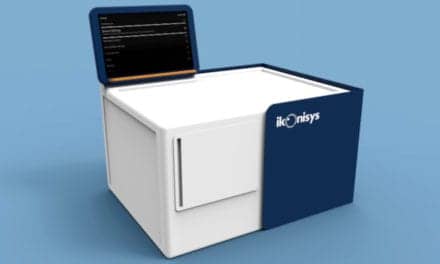Biocare Medical, Pacheco, Calif, has launched seven novel immunohistochemistry antibody markers for clinical diagnostic and research applications. The launch focuses on several immunooncology markers that are critical for early-stage cancer drug development and patient treatment.
Biocare redeveloped a major antibody marker for the S100 protein, which is expressed in astrogliomas, ependymomas, Schwannomas, and nearly all melanomas (benign and malignant) and their metastases. Compared to previous offerings, Biocare’s new marker, S100 [4C4.9], lends a stronger and more robust staining signal for immunohistochemistry applications.
Biocare has also released one mouse monoclonal antibody and five novel rabbit monoclonal antibodies in the immunooncology space. Recombinant rabbit monoclonal antibodies are suited for research applications using multiplex immunohistochemistry technologies and are not reliant upon hybridomas that may expire. The following markers are now commercially available.
- CTLA-4 [CAL49]. Ipilimumab, the first immunotherapeutic drug directed toward CTLA-4 inhibition, has demonstrated overall survival benefit in metastatic melanoma. Another CTLA-4 inhibitor, tremelimumab (IgG2 isotype), has also proven successful in metastatic melanoma and other malignancies.
- GITR [CAL8]. In preclinical models, GITR modulation has shown promising antitumor activity via significant increase in effector T cells and decrease in Tregs. Several human monoclonal antibodies that agonize GITR are currently undergoing phase I clinical studies in various solid malignancies. Preliminary results demonstrate an acceptable safety profile without dose-limiting toxicities.
- LAG-3 [CAL26]. Recent studies in a metastatic ovarian cancer mouse model showed that LAG-3 blockade leads to upregulation of other immune checkpoints (CTLA4, PD-1, and TIM-3). Combination therapy targeting CTLA-4, LAG-3, and PD-1 increases functional cytotoxic T cell levels while reducing Tregs and myeloid-derived suppressor cells.
- PD-1 [CAL20]. Treatments targeting PD-1 and its ligand, PD-L1, have shown encouraging results in melanoma, non-small cell lung cancer, and renal cell carcinoma. This antibody can also be used in multiplex stains with other antibodies such as CD4, CD8, cytokeratin, FOXP3, and melanoma markers.
- CD22 (M) [BLCAM/1796]. May be a useful marker for phenotyping mature leukemias, as CD22 membrane expression has been shown to be limited to the late differentiation stages between mature B cells (CD22+) and plasma cells (CD22–). CD22 is also strongly expressed in hairy cell leukemia.
- E-cadherin [CDH1/2208R]. Decreased expression of E-cadherin is associated with metastatic potential and poor prognosis in breast, esophageal, and prostate cancers.
“We are proud to be able to launch novel IVD immunohistochemistry markers that meet the highest standards in cancer diagnostics,” says Jason Ramos, PhD, vice president for reagent research and development at Biocare Medical. “This commitment to quality ensures Biocare is providing the best diagnostic and research utility possible.”
For more information, visit Biocare Medical.




